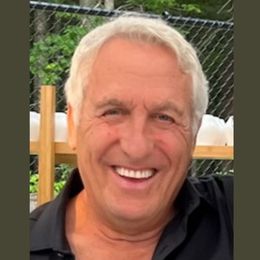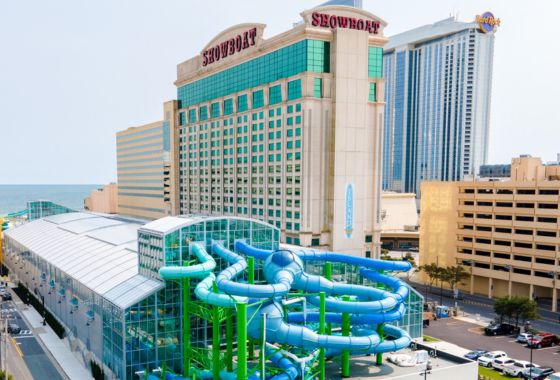Leader Interview: Bart Blatstein
Leader Interview: Bart Blatstein,
Founder, Owner, and CEO, Tower investments, Inc.
Jane Bokunewicz (JB): Welcome everyone to the LIGHTs On Leader Interview. My name is Jane Bokunewicz. I'm the Faculty Director of LIGHT, and I'm joined today by Bart Blatstein, owner and CEO of Tower Investments. Bart, thank you for being with us today.
Bart Blatstein (BB): My pleasure, Jane
JB: I’m going to start out with a really broad question, Who is Bart Blatstein?

Bart Blatstein,
Founder, Owner, and CEO, Tower Investments, Inc.
BB: Well, guys, I'm a real estate developer based in Philadelphia, who ventured into Atlantic City a handful of years ago, and currently owns the Showboat and the Island Water Park, and some other properties.
JB: What were some highlights of your career that led you to this point, here in Atlantic City?
BB: I think Harvey Kesselman put something in my drink, and next thing I know I own Showboat. But no, it's not. It's … actually maybe that is partially true.
I've always loved Atlantic City, I've been going since I was a kid, and I was intrigued by the downturn Atlantic City took.
We do what we call transformational real estate development, we go into distressed areas or challenged areas and buy a lot of real estate and think about what is missing from that area and build into it.
I guess I'm best known for the area called Northern Liberties in Philadelphia which went from the highest crime blighted neighborhood to the… what was called in the New York Times, a 6th borough of New York. So I’m very proud of that work we did there.
JB: Excellent! What would you consider your greatest challenges and successes in your career? Northern Liberties sounds like one of them, for sure, but anything else that was a challenge or a success?
BB: Challenges? The biggest challenge I have is a work, play, balance. I love what I do. I don't consider it work, well most of the time I don’t consider it work. And so, finding the time to do other things that are more, maybe a little bit more important, especially since I’m, you know, a grandfather now
Successes? I like to think that everything we've done has been transformational. Created jobs, increased the tax base, brought life to otherwise dead areas.
JB: Very good. Yeah, looking right outside my window here there's a property that hasn't been open in many years, and it does bring a kind of a blighted feeling to the area. So, enlivening something like you did really does help, very much.
What is your vision for Atlantic City? What do you think the key issues and trends are going to be in the next few years for Atlantic City?
It's going to be, not may become, it's going to be an amazing city once again."
BB: Well, I mean, I'd like to see Atlantic City go from a town known as the casino town to a town that just happens to have casinos. There's a lot missing in Atlantic City. If you look at the history, the 169-year history, it's been a lot of ups and downs and been very colorful. It's a great city with great amenities, and it's just crying for new things.
Over 80% of the residential in Atlantic City was built before 1979. There's a big reason why people aren’t moving to Atlantic City. There's nothing new. The residential market needs to grow. It's starting to grow now.
The city has the infrastructure for a city of 250,000 people, even though it has 39,000 people currently. We have all the infrastructure needed. We have a street grid, a convention center, an airport, natural gas, fiberoptic, power – we have everything. So, now it's just plug and play.
It's going to be, not may become, it's going to be an amazing city once again.
JB: Especially since it's one of the few beachfront cities that has a lot of property available. Hopefully, that gives Atlantic City an advantage for people to move into the area as we do add those new things.
What role do you see your properties having in the redevelopment of Atlantic City, specifically Showboat, Lucky Snake Arcade and the Island Water Park?
BB: I want to brag a little bit. We do have the largest arcade in the world now. And we do have the largest beachfront indoor water park, called Island Water Park, in the world.

We're nongaming amenities right now. And Atlantic City, over 80 to 85 percent of the revenue from the casinos is gaming revenue, and it's actually juxtaposed in Las Vegas. In Las Vegas, over 80-85 percent is nongaming revenue. So, there's a lot we need to do to become the city that we need to become – to rival Las Vegas.
We have access to more people than Las Vegas. We're an easy ride – 30 million people within a couple of hours. We have a beach, a boardwalk, and an ocean. Las Vegas will never have that.
We have all of the necessary components to be the best Atlantic City has ever been in its history.
JB: Great, thank you.
BB: I will say this one other thing.
We sit on an island called Absecon Island with four towns, Atlantic City, being the largest, then Ventnor, Margate, and Longport. At the south end of the island, same island, there’s $20 million homes and beachfront, waterfront land at $1,200 a square foot.
You go to the North End, Atlantic City, you have $50,000 homes, and land that's $30 a square foot. It's the biggest bargain in the planet.
JB: Great point. Excellent.
Shifting gears a little bit, in your field of redevelopment, What advice would you give to someone who was interested in pursuing a career in redevelopment?
BB: Well, I started my career 45 years ago. It was a result of failing to get into medical school, I was pre-med with a history major. I had a really great time in college, which kind of impacted on my grades, which kind of impacted on my chance to get into medical school.
I ended up getting a job in government. I needed a job. I needed to work. I got a job in the Philadelphia Housing Authority and that got me interested in real estate. I thought if I could find a little row house somewhere in a challenged neighborhood for a few $1,000. I can scrape that together and buy it and fix it up. Back in the day, Jane, we had what was called books. We didn't have the internet, so I went out and bought a bunch of books on how to build and how to fix and how to do this and that. And I did my first little property when I was 23 years old, 45 years ago, and sold it for profit. It went from there.
Anybody can do it. There's no barrier to entry. It's color blind, gender blind, education blind – anybody can do real estate. And that's what makes it so great.
There's no barrier to entry. It's color blind gender, blind, education blind – anybody can do real estate. And that's what makes it so great."
Anything else you'd like to comment on regarding your background or your experiences?
BB: Well, if the audience is the students and graduates of Stockton, that means you probably live somewhere within the region, because I think most of your students live within the region, come to Atlantic City. If you need advice, if you need council, guidance, whatever I’m available. The more the merrier.
When I go into an area, I attract other smaller developers to come into the area and eventually larger developers come in. Because, we don't have competition because a rising tide floats all boats, Jane. And the more people developing or fixing up houses or commercial buildings, or whatever, the faster the area transforms. and Atlantic City is a cool hip area with a lot of cool, nongaming properties – Siren’s (Bar & Grill) on the water in the back bay. You have the (Little Water) distillery. We have a wonderful distillery. And The Seed, the micro-brewery. We just have a lot of hidden gems in Atlantic City, and it's ripe for redevelopment.
JB: Excellent. Yeah. Sitting here in the Chelsea neighborhood, where Stockton is located, it's great to see some things already starting to turn, and hopefully, that's going to be a long-term trend. I love your vision for the city. I think you've brought up some great points for all of us to remember about Atlantic City that sometimes people forget. So, thank you for sharing your vision, and thank you for making yourself open to, possibly other interviews with students and things like that. That means a lot to a university like Stockton. Thank you again for your time and your vision, and we look forward to working with you in the future.
BB: Next to Temple University, Stockton University is my favorite, so I thank you and thank you for all the great work that all of you are doing.
JB: Thank you very much. Have a wonderful day.
And thank you to our viewers, who tuned in.



